- Home
- Christie Golden
On Fire’s Wings
On Fire’s Wings Read online
On Fire’s Wings
CHRISTIE GOLDEN
www.LUNA-Books.com
This book is dedicated to every woman who has feared her own power…and embraced it anyway
Contents
ACKNOWLEDGMENTS
Prologue
PART I
In the House of Four Waters
Chapter One
Chapter Two
Chapter Three
Chapter Four
Chapter Five
Chapter Six
Chapter Seven
Chapter Eight
Chapter Nine
Chapter Ten
Chapter Eleven
Chapter Twelve
Chapter Thirteen
Chapter Fourteen
Chapter Fifteen
PART II
In the Shadow of Mount Bari
Chapter Sixteen
Chapter Seventeen
Chapter Eighteen
Chapter Nineteen
Chapter Twenty
Chapter Twenty-One
Chapter Twenty-Two
Chapter Twenty-Three
Chapter Twenty-Four
Chapter Twenty-Five
Chapter Twenty-Six
Chapter Twenty-Seven
Chapter Twenty-Eight
Chapter Twenty-Nine
Chapter Thirty
Chapter Thirty-One
GLOSSARY
Coming Next Month
ACKNOWLEDGMENTS:
I would like to gratefully acknowledge the help and inspiration provided by the following people:
Robert Amerman and Mark Anthony, for being such terrific “wise readers”
Lucienne Diver and Mary-Theresa Hussey, for their enthusiasm and faith in this project
Michael Georges, my deeply supportive husband
Anastacia Chittenden, Lila Tresemer, Katherine Roske and all the women who have walked the Path of the Ceremonial Arts, for opening so many hearts to the Divine Feminine
…and my wonderful readers, past, present and future.
Prologue
The wind, cold and scented with death, seized the queen’s hair with cruel fingers and set it to dancing. Two weeks before, despite the queen’s years and the children she had borne, that long, thick hair had been only touched with gray. Now, there was little ebony left in the mane. The white of fear and resignation had swallowed the black, as the Shadow that loomed on the horizon had swallowed everything in the world save this lone castle and the few terrified souls it still housed.
She was tall, and stood tall even now, staring not at the rolling fields and forests and streams that would have met her gaze a fortnight past but at a pulsing blackness that mocked her defiance. She leaned forward, resting her hands on the cool strength of the stones that formed the wall of the parapet’s balcony. This, at least, was real, was solid—for the moment.
“It’s only been two weeks,” came a soft voice. The queen glanced down at the beggar boy who stood beside her, staring as raptly at the Shadow as she. There was puzzlement in the young voice, as if he, like the queen, could not truly believe that so much had happened in so brief a time. She closed her eyes, straightened, and her hands left the reassuring stone to wrap the thick embroidered cloak more closely about her frame.
“Less than that, little Lorekeeper,” she replied.
He did not say anything further, but she knew what he was thinking as if he had shouted it aloud: I didn’t know in time. Etched upon her memory, for the brief while she had left to live, was the look on the boy’s grimy face as he forced his way through crowds and guards with reckless determination. He had clutched desperately at her robe, uttering the words that chilled her to the bone: The Dancer needs help!
But the warning from the suddenly awakened memory of the base-born Lorekeeper had come too late, the queen thought bitterly, though it was no fault of the child’s. The wind stung her face, brought tears to her eyes. She blinked them back. Too late to save the Dancer, too late to salvage their own existence; too late, too late.
Following the boy, the king, accompanied by an elite group of guardsmen and his best healers, had stumbled across the body in an alleyway exactly as it had appeared to the boy in his vision. The Dancer, a youth as well-born as the Lorekeeper was base, had been robbed and murdered. His powers—probably unknown to him yet, he was terribly young—had not been sufficient to protect him. But he had rallied enough to exact revenge upon his slayer, it appeared, for the killer’s body was little more than a charred skeleton. The Dancer’s pouch, still filled with coins, lay a little distance away.
The king returned from his grim mission, seeming to her suddenly old, to tell his wife the story. With him was the boy, still clad in the vermin-riddled clothes of the streets, his thin body shaking and bowed with the weight of the world.
“It is not your fault, my child,” the queen had soothed, fighting back her own rage and despair. “You went for help as soon as you knew. The blame for…for what will come must lie with the man who murdered the Dancer.”
And who had, in that one greedy, violent act, destroyed their only hope to avert oblivion.
Not long after that, the king had ridden off to fight the Shadow, their son, still young, still unbloodied by war, at his side. The queen had kissed the hollow-eyed man who had once been passionate and proud; kissed her round-cheeked son, who was naive enough to think this a real battle, not a suicide.
And as they rode off, the queen thought with a spark of contempt: Cowards!
They did not have to sit and mind a castle full of terrified merchants, farmers, and beggars. They did not have to watch the death of everything creep closer by the hour. They ran to meet their doom, thus cheating it of the terror it doubtless craved.
The queen’s eyes narrowed and she stuck out her sharp chin defiantly.
She was the last queen of the world. It was up to her now, how they would all die. She reached out to the Lorekeeper, slipping her arm around his shoulders. By the hitching and shuddering of those shoulders, she knew he wept.
“You alone will remember,” she said softly.
The Shadow pulsed, coming nearer. It stretched upward, seething. Soon even the sky would be gone.
“I—I don’t want to,” the little Lorekeeper whispered. He dragged an oft-mended sleeve across his wet face.
“But you must,” she continued, her voice still quiet, still calm. “You are a Lorekeeper. You remember all that has gone before—all the other times when the Dancers have come and lost, or won. You would have been drawn to that Dancer had he lived, even as you were drawn to him in his death. You would have been able to help and guide him to the others, but…This time, the Dancers have failed. Yet there were times when they succeeded, and their success has bought us a final chance.”
The wind picked up. For an instant, forgetting herself, the queen reached up to smooth her tousled hair. The knots will take Ahli hours to untangle, came the simple, everyday thought. But Ahli tended the princess now, caring faithfully for the mad girl whose mind would not let her see the Shadow. The queen would not look upon her daughter again. That last time had been enough. She could not bear to watch the gentle, once-intelligent girl sit and babble, rubbing her swollen stomach and chirping happily of the son-to-be. The son who would, now, never be born.
Such simple problems as tangled hair were things of the past. The queen let the wind have its way with her once-raven locks.
“Your Majesty.”
Her seneschal. The queen turned. “Yes?”
He stood in the doorway, clasping and unclasping his hands as he searched for the words. As it turned out, they were simple enough, if brutal. “The well…it’s gone dry.”
The queen closed her eyes, forcing her face to be t
ranquil. “Then let us open the wine cellars. I would not see my people without something to wet their throats.” And perhaps the drunkenness would take away the sting. Not long, not long now.
“And light all the torches,” she added. “Build fires.” She turned again, her gaze drawn to the encroaching Shadow. “Let us keep the light as long as we may.”
The man bowed, retreated. They were alone again on the parapet, beggar and queen, staring out as if mesmerized at their approaching destruction.
“Twice failed,” whispered the Lorekeeper in a voice that cracked with fear and an ancient grief. “Twice succeeded. Only one more chance.”
“The fifth time the Dancers come,” agreed the queen, “will be our final chance. Eternal salvation…or nothing at all, ever again. It may well fall to you,” she said with a quiet urgency. “Do not forget.”
“I won’t,” the boy promised. “I won’t.”
She folded him close, held him, as she would her own son. He was their hope. He, and the other Lorekeepers, and the Dancers who would not yet be born for another five thousand years.
The Shadow stretched, languidly.
The twin suns went out.
PART I
In the House of Four Waters
Chapter One
The day was hot, and lines at the public well in the marketplace were long. Brown faces shone with sweat, save where the dust had clung, turning bronze skin a shade paler. In the distance, false oases beckoned, their shimmering heat lines tricking the unwary into traveling just a little farther, just a little more.
People talked, among themselves, haggling with merchants, or crying their wares. Horses jangled their tack, blew and stamped impatiently. The reek of horse and dung vied with the rich fragrances of cooking meats, the tangy scents of fresh fruits, and the sweet, heady aroma of a variety of incense and spices.
This marketplace was the most elaborate in the land. Merchants came from all over Arukan to sell their goods. In one booth were fine daggers and swords, with intricately carved hilts and embroidered sheaths. In another, an artisan displayed carefully crafted jewelry to high-caste women. Unable to afford a booth, a man in his middle years had spread out a carpet in front of the jewelry seller. His pots were beautiful, but he did not appear to be selling many. By contrast, the weaver’s booth across from the potter and the jeweler was crowded, and customers exclaimed over her blankets, carpets, saddle tack, and horse regalia.
By far the most popular vendor, today as every day, was the wizened, toothless little man who crafted charms. The jeweled pendant, cleverly fashioned to look like an amber eye with a slit pupil, would make the Great Dragon, guardian of the Arukani, look upon one with favor. And the necklace that was a small mirror would reflect the evil gaze of the demonic kulis. It also, as one woman was proving, was useful for making sure nothing was lodged in one’s teeth.
Other things were for sale, too—roasting meats, fresh and preserved fruits and vegetables, breads, clothing, toys and games, and services of all varieties.
Kevla took a small sip from her waterskin. An unkind soul might have used the word “scrawny” to describe the ten-year-old, but there were muscles beneath the loose rhia that draped her body. Her hair, reddish in the harsh sunlight, was pulled back into a braid that fell the length of her back. Her eyes, almost too large in her small, sharp face, missed nothing. Kevla knew the visitors to the marketplace well, and if Keishla had earned no coins today, the girl knew that it was hardly her fault.
Kevla had been calling since the first vendor opened for business shortly before dawn, and her parched throat was testimony to her hard work. She could, of course, stand in line for water at the well as others did, but that would take her away from her prized spot at the intersection of the two main streets. She might miss a customer. Better the thirst than her mother’s wrath.
Keishla carried herself with a quiet, regal air. She was sometimes unexpectedly gentle, and when she smiled, Kevla thought her beautiful. But more often Keishla would sit silently, her thoughts far distant from the present, and if Kevla interrupted her mother at such moments she knew Keishla would turn upon her, as if Kevla were the cause of all her pain. Kevla didn’t understand, but she was wise enough to recognize these moods and be quiet when they were upon Keishla.
She permitted herself another miserly sip. The bag would have to last her throughout the day, and it was only midmorning. Kevla retied the goatskin bag around her tiny waist, dragged a hand across her sweat-dappled forehead, took a deep, dusty breath, and resumed her task.
“Hey-la, hey-lo,” she cried in a singsong voice. Her feet stamped in the dust, and her little body swayed with the rhythm of the chanting. “Hey-la, hey-lo! Sweeter than wine are the lips of Keishla! Keishla the fair, Keishla the wise, Keishla who knows what a man desires! Soft are the thighs of Keishla, and the dance of pleasure played out between them is known only to the most fortunate of men!”
She was engrossed in her cry now, and spread her arms, lifting the folds of the shabby, oft-mended rhia to reveal the toes of her bare, dirty feet. It was as far as she dared go. If she lifted the rhia to reveal a glimpse of calf or even ankle, she might be accused of practicing the same skills as her mother. That would not do. Those skills could be peddled in the marketplace, yes, but the actual conduct of business needed to be done in private. And Kevla, despite her words and knowing moves, was not skilled in such matters.
So Kevla, her eyes bright and darting about for anyone, male or female, who might be a potential customer, kept the rhia at its proper, yet tantalizing, length.
“You there, uhlal,” she cried, invoking the term of high respect, “you look like a man who would enjoy sampling Keishla’s charms!” She pointed a finger at him, flashing teeth that were remarkably strong and white considering her poor diet.
The man looked about, stammering, “I—I—”
“Come, sir, lay your mighty staff in the sweet honeyed nest of passion!”
The man turned crimson, and too late Kevla realized that behind him, blocked from her short-statured view, walked a woman who was undoubtedly his wife. Quickly, the girl changed her approach.
“Hey-la, uhlala!” she addressed the woman, making a deep obeisance. “The beautiful Keishla will gladly teach what she knows to any woman, for the right fee. Will you come with me, and learn how to keep that man by your side from straying for all time? It is a small price to pay, hey?”
It was a desperate attempt to salvage the situation, and Kevla was not surprised when the woman glared at her and reached to clutch her husband’s arm, steering him away from temptation.
Kevla sighed. But when the man cast a furtive, apologetic glance over his shoulder, her spirits lifted. Perhaps tomorrow, or the day after, he might come back and sample Keishla’s “wares.”
In the meantime, she was not finding her mother customers, and without customers, she would not eat. Kevla cleared her throat and was about to resume her chant when a flurry of movement down the wide, hard-packed dirt road caught her attention. A few stalls down, everyone was falling to their hands and knees, heads touching the ground, heedless of the dust. That could mean only one thing. A very high-ranking uhlal had decided to visit the market today instead of sending his servants. It happened, from time to time, and Kevla rejoiced. Occasionally, the uhlals, especially a khashim, one of the clan leaders, felt generous and scattered coins and jewels to the lower castes. Keishla had once spoken with scorn of the practice, claiming she’d rather keep her pride than scrabble in the dust for a khashim’s amusement.
Kevla, who had been gnawing on a dried piece of three-day-old bread at the time of Keishla’s statement, had said nothing. But she thought that one single gold kha would have bought a week’s worth of food, and a week’s worth of food just might be worth scrabbling in the dust for a khashim’s amusement.
Praying to the Great Dragon that the approaching uhlal was in a generous mood, the girl quickly fell to her knees. She heard the clopping sounds of the horse’s
hooves as it approached, and strained her young ears for the tinkling of tossed coins.
That hoped-for sound did not come. Instead, the horse stopped in front of her. She stared at its hooves. Suddenly afraid, Kevla did what tradition and the mercilessly strict caste system practiced in her country absolutely forbade her to do.
She looked up.
And met the gaze of a tall, handsome man who seemed all the taller for being perched atop one of the most splendid horses Kevla had ever seen. The beast’s sand-colored coat gleamed with careful grooming, not yet dulled by the dust of the day. It mouthed its bit impatiently, revealing gold-tipped tusks. Its striped legs and face were a rich loam hue, and its tack and saddle were decorated with beads and jewels. Its rider’s fine clothes and proud pose bespoke his high caste.
He was clad in the man’s short rhia, and the powerful legs that gripped the horse were covered with snug-fitting white silk breeches. Belt and boots were of finely tooled leather, and his dark hair was protected from the harsh rays of the Arukani sun by an embroidered kerchief. His face was clean-shaven, proof of his rank, for only khashims shaved their beards. Gold earrings glinted, catching the sparkle of bright eyes that were now trained intently on Kevla. Fastened to the leather belt were an expensive sword and matching dagger. At a respectful distance, mounted on their own horses, two servants waited and watched.

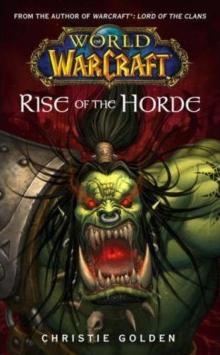 Rise of the Horde
Rise of the Horde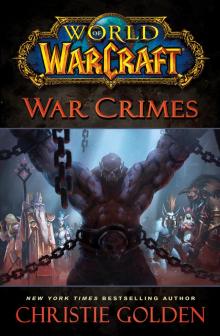 World of Warcraft: War Crimes
World of Warcraft: War Crimes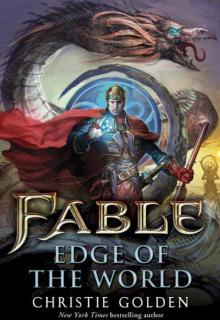 Fable: Edge of the World
Fable: Edge of the World Homecoming
Homecoming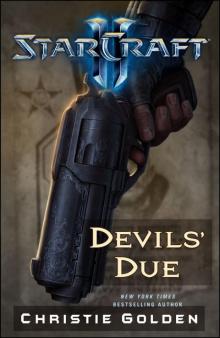 StarCraft II: Devil's Due
StarCraft II: Devil's Due Starcraft II: Flashpoint
Starcraft II: Flashpoint Allies
Allies Shadow Hunters
Shadow Hunters The Shattering: Prelude to Cataclysm wowct-1
The Shattering: Prelude to Cataclysm wowct-1 STAR TREK: VOY - Homecoming, Book Two - The Farther Shore
STAR TREK: VOY - Homecoming, Book Two - The Farther Shore King's Man and Thief
King's Man and Thief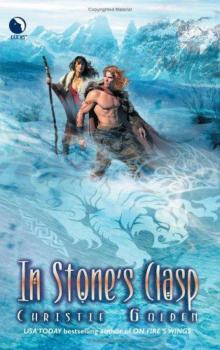 In Stone's Clasp
In Stone's Clasp Jaina Proudmoore: Tides of War
Jaina Proudmoore: Tides of War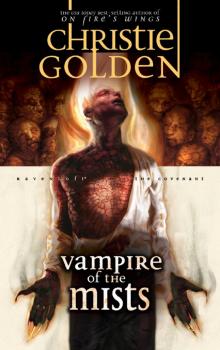 Vampire of the Mists
Vampire of the Mists Star Wars: Fate of the Jedi II: Omen
Star Wars: Fate of the Jedi II: Omen King's man and thief cov-2
King's man and thief cov-2 Star Trek
Star Trek StarCraft: Dark Templar: Twilight
StarCraft: Dark Templar: Twilight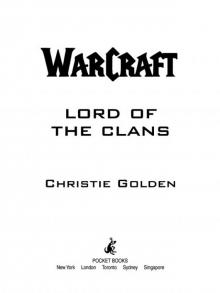 Lord Of The Clans
Lord Of The Clans ARKTIKA.1 (Short Story)
ARKTIKA.1 (Short Story)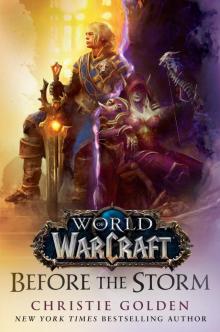 Before the Storm
Before the Storm STAR TREK: VOY - Homecoming, Book One
STAR TREK: VOY - Homecoming, Book One Shadow of Heaven
Shadow of Heaven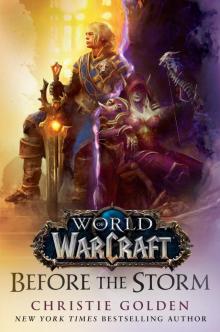 Before the Storm (World of Warcraft)
Before the Storm (World of Warcraft) Warcraft Official Movie Novelization
Warcraft Official Movie Novelization Flashpoint
Flashpoint STAR TREK: The Original Series - The Last Roundup
STAR TREK: The Original Series - The Last Roundup On Fire’s Wings
On Fire’s Wings Spirit Walk, Book One
Spirit Walk, Book One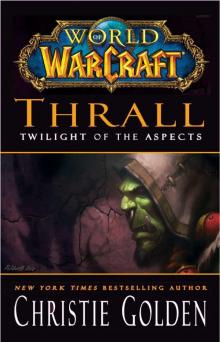 Thrall Twilight of the Aspects
Thrall Twilight of the Aspects Valerian and the City of a Thousand Planets
Valerian and the City of a Thousand Planets Warcraft
Warcraft Assassin's Creed: Heresy
Assassin's Creed: Heresy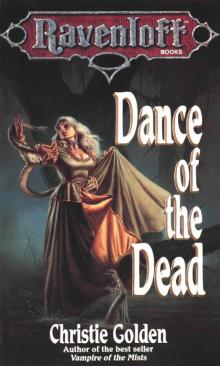 Dance of the Dead
Dance of the Dead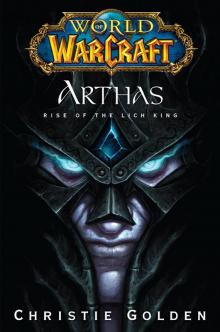 Arthas: Rise of the Lich King wow-6
Arthas: Rise of the Lich King wow-6 Assassin's Creed: The Official Movie Novelization
Assassin's Creed: The Official Movie Novelization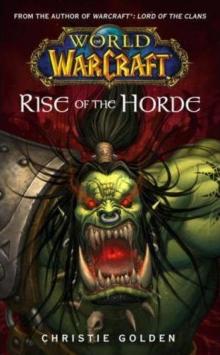 Rise of the Horde wow-2
Rise of the Horde wow-2 Dark Disciple
Dark Disciple Ghost Dance
Ghost Dance The Shattering
The Shattering Spirit Walk, Book Two
Spirit Walk, Book Two Star Wars: Fate of the Jedi: Ascension
Star Wars: Fate of the Jedi: Ascension Star Wars: Fate of the Jedi V: Allies
Star Wars: Fate of the Jedi V: Allies The Enemy Within
The Enemy Within Kindred Spirits
Kindred Spirits The Farther Shore
The Farther Shore Star Trek: Hard Crash (Star Trek: Starfleet Corps of Engineers Book 3)
Star Trek: Hard Crash (Star Trek: Starfleet Corps of Engineers Book 3) Twilight
Twilight